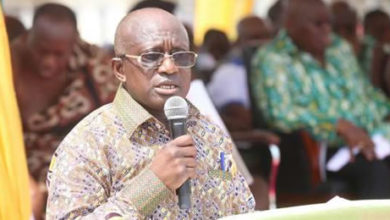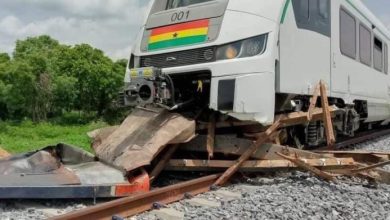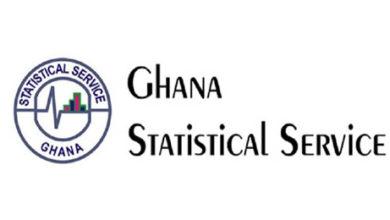Energy debts huge but not cause of “intermittent outages” – Amewu insists
Debts running into millions of Ghana cedis are burdening the energy sector, John Peter Amewu has admitted, but refutes suggestions they are the cause of the recent wave of intermittent power cuts across the country.
The Energy Minister has been fighting off criticism by Minority MPs that the two-week long unannounced power outages are as a result of a lack of cash to purchase fuel to run power plants – reminiscent of the 2013 load shedding that crippled businesses and frustrated Ghanaians for three years.
Although Mr Amewu had sought to explain that technical challenges, rather than financial difficulties, are to blame for the power cuts at a press conference, scepticism is rife among Ghanaians.
The Institute for Energy Security (IES), a think tank in the African energy sector, also said Monday in a press statement that, contrary to the explanation by the Energy Minister that huge debts in the sector is to blame, fearing the situation could get worse.
However, speaking on PM Express on Wednesday evening, the Minister said, unlike the inability of the previous National Democratic Congress (NDC) administration to manage the debts in the sector to the point where the whole country was eventually plunged into darkness, the situation is different under the current regime.
“Yes we have financial challenges, which of course I must admit, but we are addressing them. They [NDC] had financial challenges but they were not able to address them,” he explained the Minority’s scepticism.
“Basically the energy sector has accumulated a lot of Legacy Debts over the period. The debt burdens on the agencies are very huge,” he admitted on MultiTV’s current affairs programme.
Debts
Breaking the debt burden within the sector, he revealed Government’s debt to the Electricity Company of Ghana (ECG), the main power distributor currently stands at GHS1.2 billion. The Tema Oil Refinery also owes other agencies in the sector some GHS 291 million.
“Some of these debts are also due to power that is not being consumed but ought to be paid for…If you do the metrics carefully, some of these debts can cancel out. So what finance is trying to do now is to engage a very professional body to do the reconciliation,” he said.
He said the Finance Ministry has, for instance, paid some of ECG’s debt directly, suggesting that should the reconciliation be done, the GHS1.2 billion indebtedness to the power distributor should reduce.
Furthermore, the Minister revealed that important entities in the power sector remain on a long list of ‘entities to be paid’. They include Ghana Grid Company (GRIDCo) – GHS132 million; Asogli power plant – GHS 122 million; Bui Power Authority – GHS 209 million; Ghana Gas Company – GHS430 million; Bulk Oil Storage Company (BOST) – GHS 217 million, among others.
“The previous government faced similar challenges, but we are finding ways,” Mr Amewu told show host, Evans Mensah, urging public confidence in his Ministry’s resolve to do whatever it takes to ensure that the country does not return to the era of load shedding or “dumsor”.
The Minister said there are firm plans to reduce significantly transmission and distribution losses that translate into higher cost of power.
“Going forward, we are doing a lot of investments in transmission lines because some of these conventional systems have not been changed for far too long. So there is a lot of upgrades [ongoing],” he said.
Enough Power
Providing figures to buttress his point that there was energy sector was not distressed, he said current peak demand stands at 2,336MW, but this can be increased when demand heightens.
“Karpower, for instance, can do 450MW, but it is doing less than 450MW. It is doing about 400MW. Asogli is doing about 94MW as of today. Akosombo can do as much as 900MW, Akosombo is doing about 700MW now. So there is still a lot more room to expand if demand exceeds supply. We are meeting demand currently,” he said.
“People may be off on the basis that there are technical challenges – intermittently; which may happen when a transmitter triggers off or if there is a problem within an area, we may experience some pockets of those things across some areas of this country which I cannot be able to tell.
“But these shortfalls, in terms of intermittent outages, are not as a result of non-availability of generation to meet them. We have sufficient generations to meet demand. So when the power is harvested to the grid, transmitted and distributed, along that portion, if there is a distribution problem, it has nothing to do with generation and transmission problems. That is the point we are trying to address,” the Energy said.
Source : Myjoyonline





